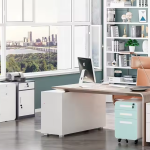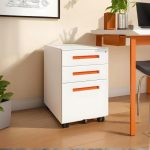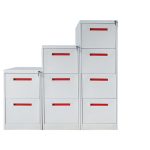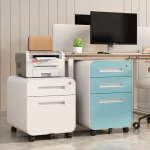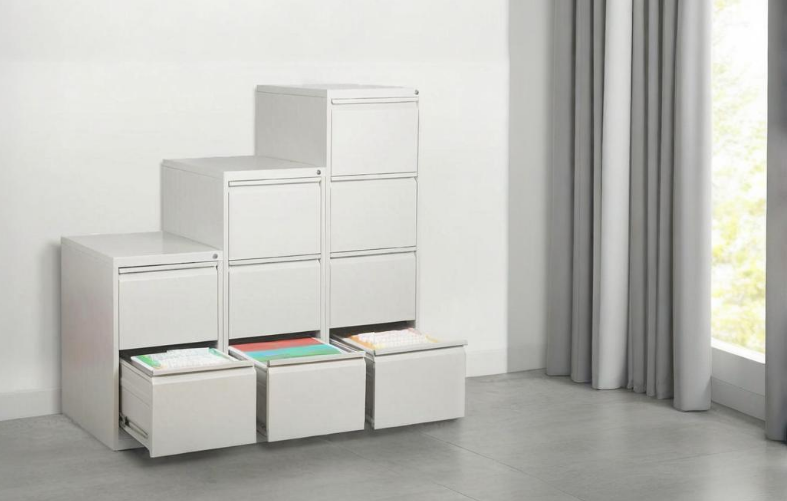
Efficient document storage is crucial for any business, whether you're managing client records, financial documents, or HR files. Purchasing commercial file cabinets in bulk can help streamline organization, reduce costs, and maintain consistency across your office.
However, not all file cabinets are created equal. Factors like material quality, security features, and storage capacity play a significant role in long-term usability. This guide will walk you through everything you need to know before making a bulk purchase.
Understanding Your Business Needs
Before buying file cabinets in bulk, assess your storage requirements, office space, and future growth plans.
- Document Volume: Estimate how many files you need to store—do you require letter-size (8.5” x 11”) or legal-size (8.5” x 14”) cabinets?
- Access Frequency: Will employees need daily access, or are these for archival storage?
- Space Constraints: Measure available floor space—do you need vertical (tall) or lateral (wide) cabinets?
- Scalability: Will your storage needs grow? Consider modular or stackable designs.
Key Factors to Consider
A. Material Quality & Construction
- Steel Thickness: Look for 0.6mm–0.7mm cold-rolled steel for durability.
- Sturdy Construction: Check for reinforced drawers, anti-tip mechanisms, and smooth-gliding rails.
- Powder-Coated Finish: Prevents rust and scratches, extending cabinet lifespan.
B. Security Features
- Locking Systems: Options include key locks, combination locks, or electronic locks.
- Fire Resistance: When storing sensitive documents, consider using fireproof file cabinets (UL-rated).
- Anti-Theft Design: Look for reinforced hinges and pry-resistant doors.
C. Size & Configuration
- Vertical vs. Lateral:
- Vertical cabinets save floor space but hold fewer files per drawer.
- Lateral cabinets offer wider storage but take up more room.
- Mobile vs. Stationary:
- Mobile cabinets (with casters) allow flexible office layouts.
- Stationary cabinets are more stable for heavy-duty use.
D. Ergonomics & Accessibility
- Full-Extension Drawers: Allow easy access to files at the back.
- Weight Capacity: Ensure drawers can handle 50–100 lbs each.
- Height Adjustability: Some cabinets allow customizable drawer arrangements.
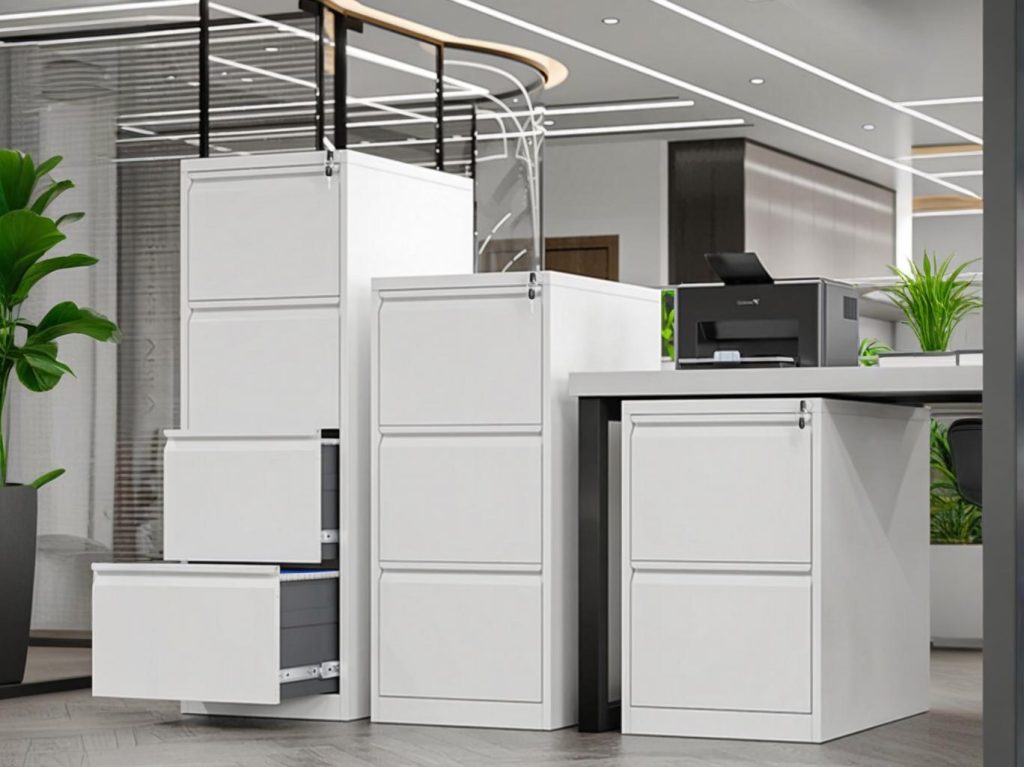
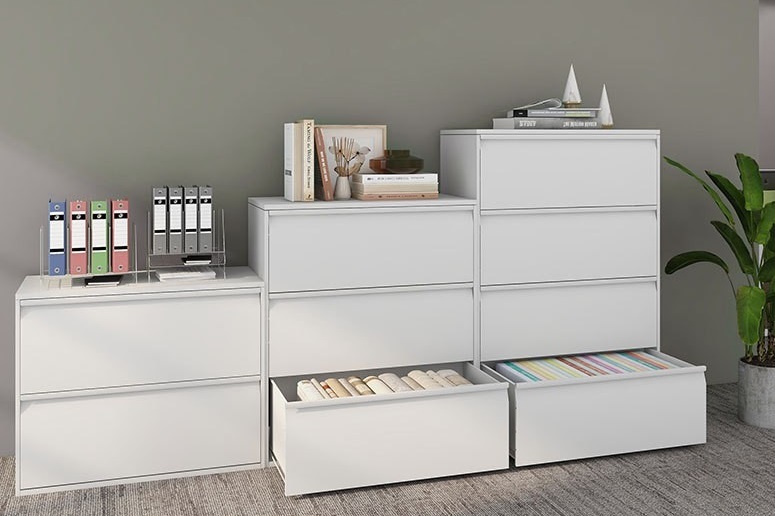
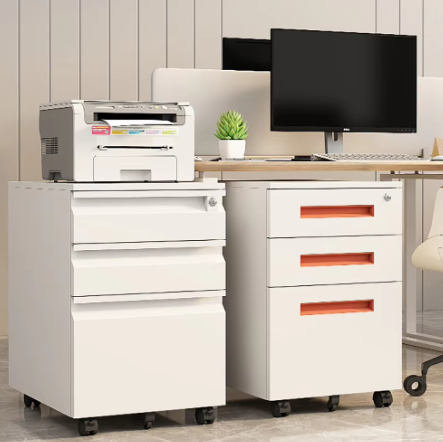
Considerations for Bulk Purchasing Commercial File Cabinets
A. Quantity Discounts & Pricing
- Compare per-unit costs—bulk orders often reduce prices by 10–30%.
- Balance quality vs. budget—cheaper cabinets may wear out faster.
B. Supplier Evaluation
- Reputation: Check reviews and industry certifications (e.g., BIFMA for office furniture).
- Warranty: Look for 5–10-year warranties on heavy-use cabinets.
- Lead Time: Confirm delivery schedules for large orders.
C. Customization Options
- Branding: Choose colors matching your office decor.
- Special Features: Some cabinets include built-in power outlets or cable management.
Industry-Specific Recommendations
A. Legal Offices
- High-security steel cabinets with electronic locks for confidential documents.
- Fireproof models to protect legal records.
B. Medical Facilities
- HIPAA-compliant storage for patient records.
- Locking lateral cabinets for easy access to frequently used files.
C. Financial Institutions
- Heavy-duty steel cabinets for long-term document storage.
- Waterproof & fireproof options for tax records and financial statements.
D. Educational Institutions
- Plastic or lightweight steel cabinets for classrooms.
- Open-shelf lateral files for easy student record access.
Installation & Maintenance Tips
- Space Planning: Allow at least 36 inches of clearance for drawer access.
- Weight Distribution: Place heavier cabinets against walls for stability.
- Maintenance:
- Regularly clean tracks and lubricate slides for smooth operation.
- Avoid overloading drawers to prevent warping.
Making the Final Decision
Before committing to a bulk order:
Request samples to test quality.
Compare multiple suppliers for the best deal.
Check return policies in case of defects.
Conclusion
Investing in high-quality commercial file cabinets ensures long-term organization and efficiency. By considering material, security, size, and supplier reliability, you can make a smart bulk purchase that meets your business needs.


